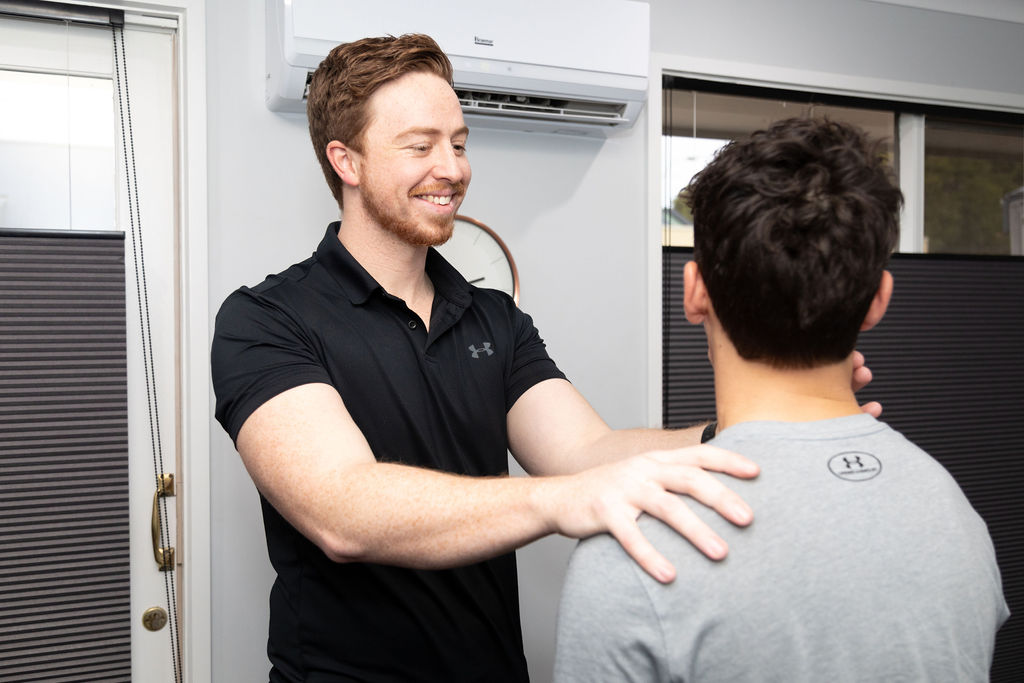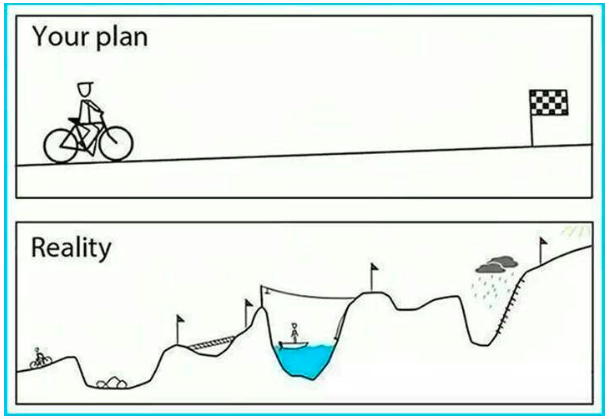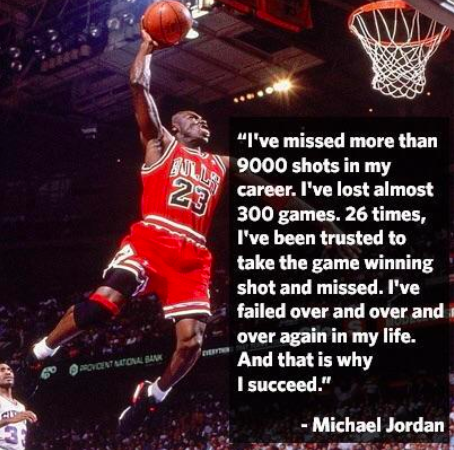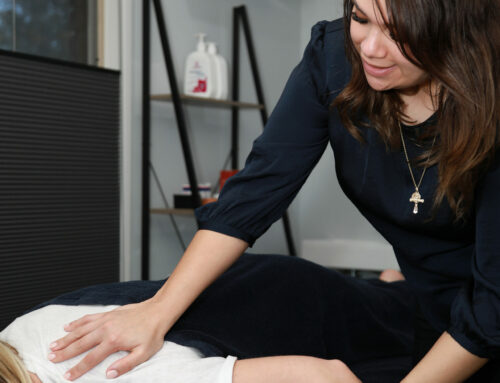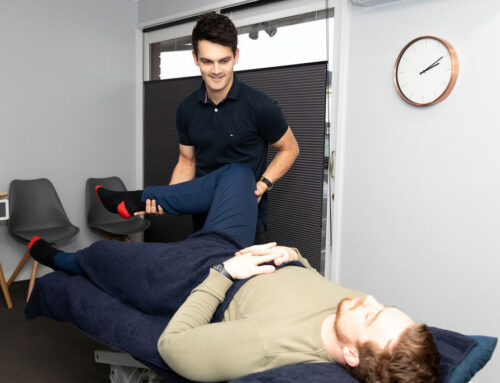Let us use our imaginations for a moment. Picture yourself taking your 3-year-old son to his very first swimming lesson. The first one without you in the pool with him. He’s been excited all day, he’s wearing his cool new bathers and his very first pair of goggles. He loves the water, he loves the beach, bath time is his favourite activity and he loves coming to the pool. He runs into the swim centre and eagerly looks for his new teacher.
First off, the teacher asks the class to float on their back, something your child has done a million times before with you standing behind them. It comes to their turn and your child doesn’t move a muscle, instead his says to the swimming instructor “I can’t do it”. This becomes a running theme throughout the lesson and very little swimming takes place. Although the teacher tries their absolute best to help your son swim by himself, he clings to them like his life depends on it. The lesson ends and your son is upset. He tells you that he hates swimming and that he never wants to come back.
Now ask yourself, what has changed? 30 minutes ago he couldn’t wait to hop in, last week after their lesson you were checking to see where the 2036 Olympics might be held. You know the answer, you aren’t in the pool with him anymore and he is scared. His safety net is gone and rather than try and fail, he doesn’t try at all.
I use this example for two reasons. Firstly, in my former life I was a swimming instructor and this situation was something I saw in some form or another in every class I taught for the better part of 10 years. Secondly, it is a simple example to understand and it perfectly illustrates the theme of this blog – failure. And the way that failure can cause us to not only give up when things get tough, but may in fact prevent us from beginning in the first place.
FEAR OF FAILURE
Change is scary. We as individuals rarely like it and are far happier staying in our comfort zone. I believe this is the case for a very simple reason.
If we try to change, if we put ourselves out there we open ourselves up to the possibility of FAILURE.
If you were to ask anyone you know to define the word failure, you would get responses like: “Losing”, “Lack of Success”, “Below 50%” or “Coming last.”
I would disagree with all of these.
I believe that failure is not merely a lack of success. It is the inability to recognise, work towards and pursue your goals, in spite of whatever setbacks or challenges come your way.
In life, our goals, our wants and our needs are forever changing. When we find out what it is that we want, we provide ourselves with a target, a goal to begin to work towards. Life isn’t a continual series of races to achieve individual goals, rather a lifelong development of ourselves as individuals. So in the context of a life’s worth of experience, how significant is a 5-minute failure? Not very.
FAILURE = LEARNING
Throughout our treatment journey as well as in the pursuit of our goals it is inevitable that we encounter setbacks. It is very rare in life that things go perfectly, especially on the first attempt. This is a truth that we are all aware of, something that we try to teach our children. Yet when we stumble at the first hurdle or our plan fails to account for every possible scenario, we become upset with ourselves, we tried and we failed and now we are defeated.
It is important to remember in these moments that FAILURE IS NOT THE OPPOSITE OF SUCCESS, rather failure is a necessary stepping stone on the way to success. As we discussed in our last blog, whenever we fail we learn and when we learn we are able to adapt, change our plan and improve which gets us closer to achieving our goals. We also discussed SMART GOALS and breaking down our goals into smaller “step by step” goals. These steps allow us to celebrate our achievements (however small) as well as recognise that slip-ups are only very minor in the grand scheme of things.
This is something we as Osteopath’s see day in and day out, as it is far easier to dwell on the negatives than it is to recognise the positives. For example; a patient who may have had constant pain for a month and then may have experienced improved pain for an entire week, followed by one day of worsened pain. Often when this happens it can feel as though they are back to square one. That is however not the case; as we know, the treatment journey isn’t always straightforward and perfect, it has its ups and downs and it is important to see the positives and wins as just that. WINS.
Let’s look at the example of walking a kilometre. It can take around 1500 steps to walk a kilometre. If you stumble at step 876 have you failed? If your shoelace comes undone at 1296 do you have to turn around and start again? If you complete the kilometre in 1563 steps did you lose? Whenever we hit a roadblock along the way to our goals, we have NOT failed the entire goal, we have merely stumbled at one step along the way. It does not matter how we get to where we want to go, as long as we do not give up along the way. Context is so important. Yes, it feels bad when we fail, but often it is such a minor occurrence in a long journey, so always keep in mind the big picture.
A great week is better than a perfect day.
A great month is better than a perfect week.
A great year is better than a perfect month.
WHY IS FAILURE IMPORTANT TO US?
There is a concept known as progressive overload. Progressive overload put very simply means that you are continually training/working at a higher level so that your body can adapt and rise to that level. Your body responds by getting stronger, faster, more resilient in order to cope with the level of training. I believe that the mind works in a very similar way. The mind thrives on challenges and when we test our mind it gets stronger. Making mistakes is often the best way to learn because your mind has to understand what went wrong in order to correct it the next time.
While we are thinking about progressive overload, it is important to touch on expectations. If I had never run for 10 minutes around the block, I cannot expect myself to go out and run a marathon. In the same way, when we have big audacious goals, we cannot expect them to be achieved overnight. It is important to be realistic. Whilst taking everything one step at a time seems simple and tedious, the smallest changes can help to achieve the greatest goals, when done consistently. Be patient, be consistent and keep working towards your goals.
For those who have followed this series of blogs, we are about to go full circle, so strap in. Let’s imagine that the three-year-old in the story was a young Michael Phelps. That first swimming lesson was never going to turn him into an Olympic champion, but it was the first step in a lifelong journey towards it. If he had never tried to swim by himself and quit swimming after that first lesson where would he be now? Would it be the young swimming teacher’s fault that he never tried and gave up?
As Osteopaths, we want to help every single person recognise and achieve their goals. We will help along the journey in any way that we can celebrate the wins when they come, as well as help when setbacks occur. We love doing this because we care and we want everyone to live healthier and HAPPIER lives.
BUT, we can only help you achieve your goals if you first set them.
Take a risk, open yourself up to failure.
Take the first step in a long journey of little steps and remember that when you step in the wrong direction, it’s not the end of the world.
